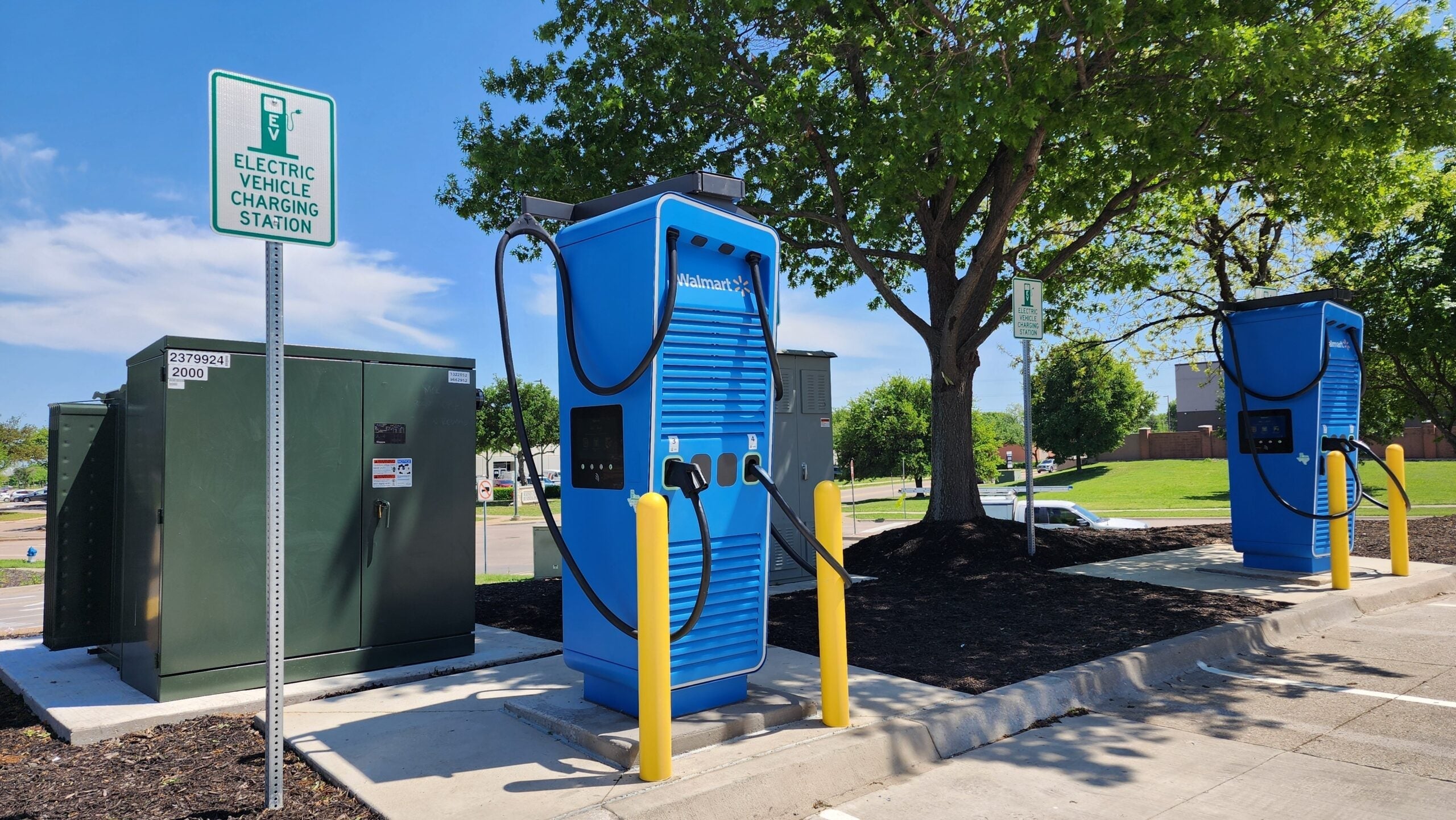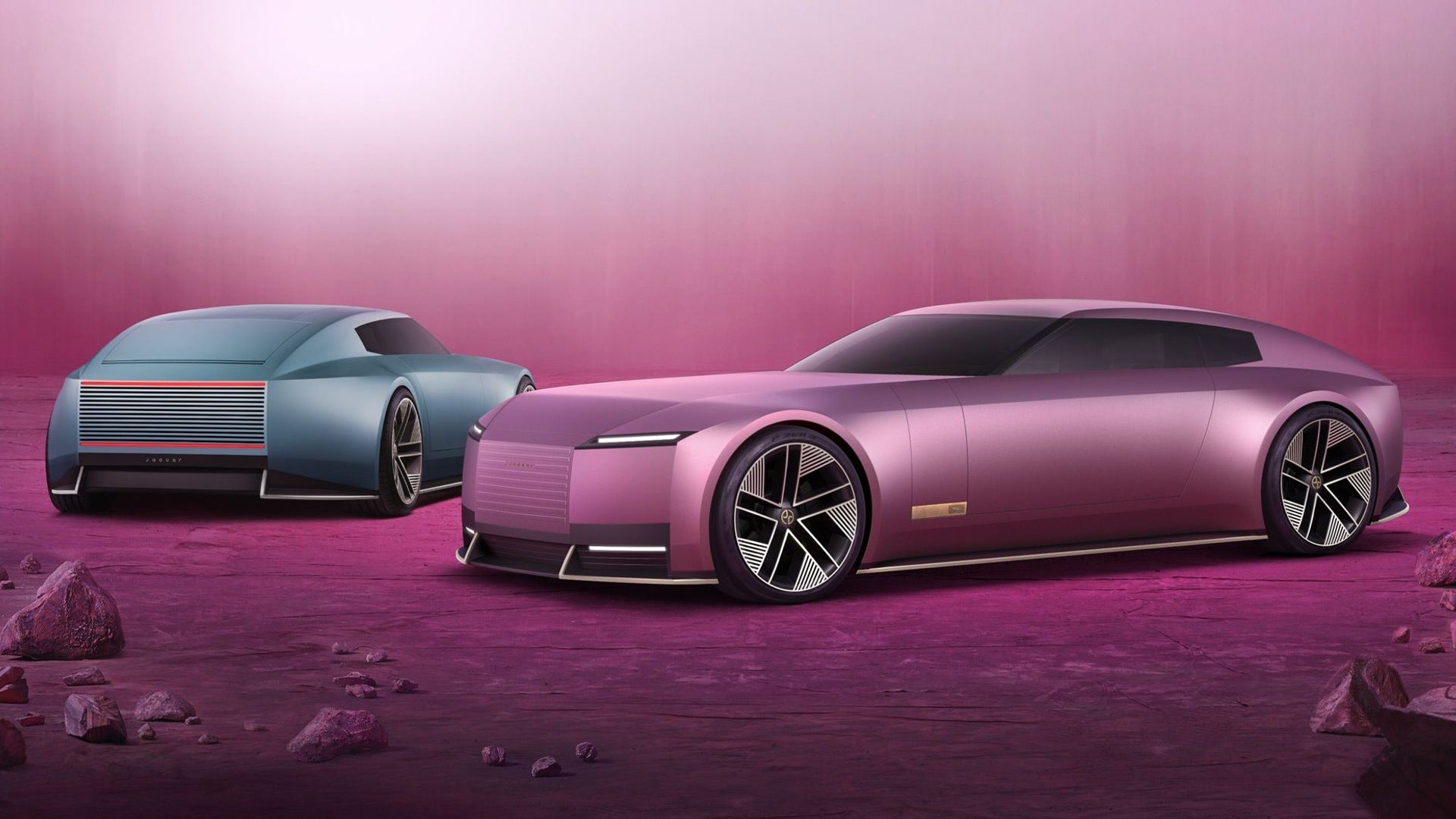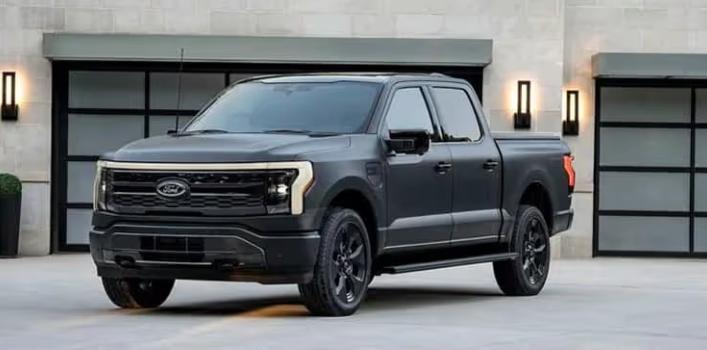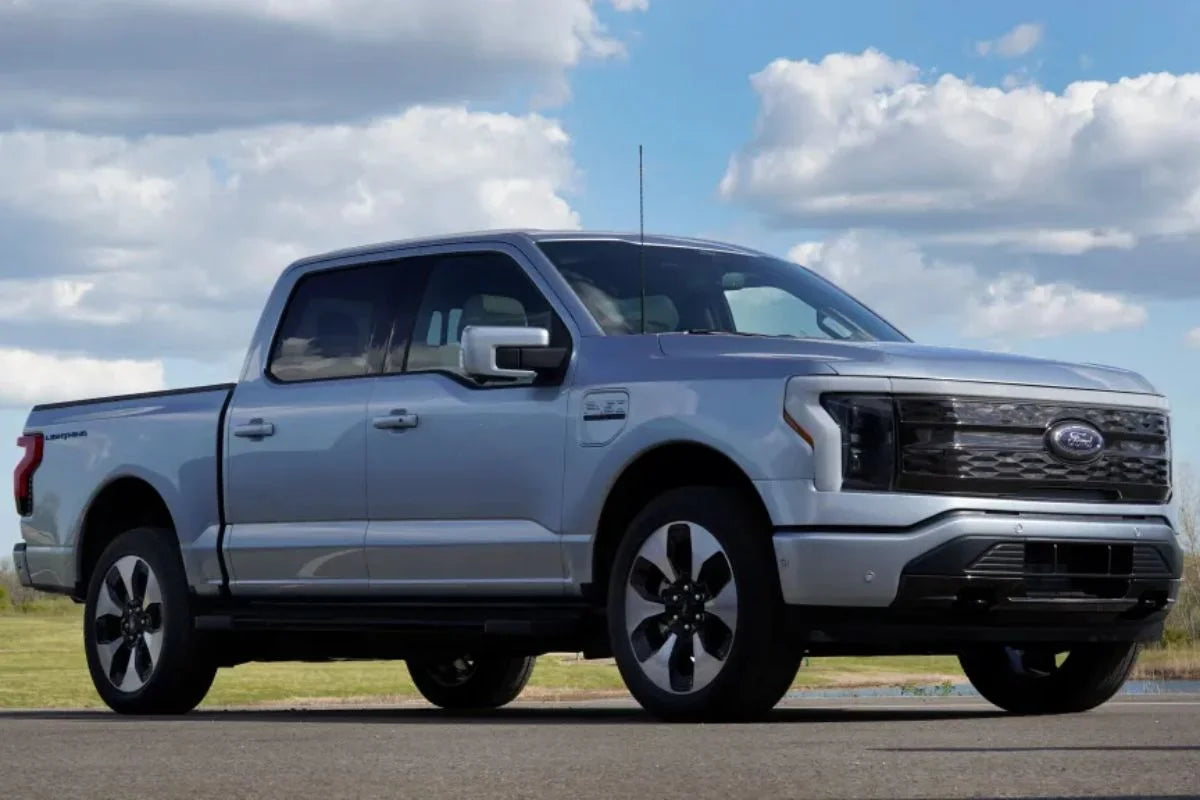Walmart geht über den Lebensmittelhandel und den Handel mit Alltagsgegenständen hinaus und steigt direkt in das Geschäft mit Ladestationen für Elektrofahrzeuge ein. Mit dem ehrgeizigen Plan, ein eigenes Ladenetz in den gesamten USA zu betreiben, plant Walmart, die Ladeinfrastruktur landesweit auszubauen. Für Fahrer von Elektrofahrzeugen könnte dies eine der bedeutendsten Erweiterungen der öffentlichen Ladeinfrastruktur im Land darstellen.
Walmarts Ladeambitionen
Bereits 2023 kündigte Walmart seine Vision an , bis 2030 landesweit an Tausenden von Walmart- und Sam's Club-Filialen Ladestationen für Elektrofahrzeuge zu installieren. Nun hat der Einzelhandelsriese seine ersten drei Pilotstandorte – zwei in Texas und einen in Arkansas – offiziell eröffnet und mehr darüber verraten, was Autofahrer in den kommenden Jahren erwarten können.
Walmarts Größe macht diesen Schritt besonders wirkungsvoll. Das Unternehmen betreibt in den USA über 5.200 Walmart- und Sam's Club-Filialen in ländlichen, vorstädtischen und städtischen Gebieten. Laut Walmart leben 90 % der Amerikaner im Umkreis von 16 Kilometern um einen Walmart , was die Filialen zu bevorzugten Anlaufstellen für Elektroauto-Ladestationen macht.

Erweiterung über Partnerschaften mit Drittanbietern hinaus
Walmart ist bereits ein beliebter Ort zum Aufladen und beherbergt Hunderte von Stationen, die von Drittanbietern wie Electrify America und EVgo betrieben werden. Im Jahr 2023 gab das Unternehmen an, über 1.300 Ladegeräte an mehr als 280 Standorten zu verfügen.
Doch diesmal übernimmt Walmart die volle Kontrolle. Das neue Netzwerk wird firmeneigener Betrieb sein und die bestehenden Ladestationen von Drittanbietern ergänzen. Walmart hat zwar keine genauen Installationszahlen genannt, Branchenanalyst Tom Moloughney spekuliert jedoch, dass bis 2030 landesweit Zehntausende Ladestationen installiert sein könnten.
Hochleistungsladen mit CCS1 und NACS
Eines der mit Spannung erwarteten Details der Walmart-Ankündigung ist die Wahl der Hardware. Walmart plant die Installation von 400-kW-Schnellladegeräten , die sowohl mit CCS1- als auch mit NACS-Anschlüssen (SAE J3400-Standard, bekannt durch Tesla) ausgestattet sind. Walmart teilt die Verfügbarkeit zunächst auf CCS1 und NACS auf, plant aber, künftig stärker auf NACS zu setzen. CHAdeMO -Ladegeräte sind nicht enthalten.
Am Pilotstandort in McKinney, Texas , setzte Walmart Alpitronic HYC400-Ladegeräte ein, die jeweils über einen CCS1- und einen NACS-Anschluss verfügen. Walmart bestätigte außerdem, dass es für zukünftige Installationen Ladegeräte von ABB beziehen wird.
Ein reibungsloses Ladeerlebnis
Walmart verspricht seinen Fahrern ein unkompliziertes Ladeerlebnis . Ladevorgänge können über die Walmart-App gestartet werden, indem man einen QR-Code scannt, den Stecker auswählt und einsteckt. Erste Berichte zeigen Ladegeschwindigkeiten von über 300 kW , genug, um die Reichweite innerhalb von Minuten um Hunderte von Kilometern zu erhöhen. Walmart plant außerdem , Kreditkartenzahlungsoptionen einzuführen, zumindest in den Bundesstaaten, in denen dies gesetzlich vorgeschrieben ist.
Was die Preisgestaltung angeht, legt Walmart offenbar Wert auf erschwingliche Preise . An den Pilotstandorten kostet das Aufladen 0,42 Dollar pro kWh – etwas günstiger als bei den Wettbewerbern in der Nähe . Wenn diese Preisphilosophie landesweit gilt, könnte Walmart zu einem der kostengünstigsten Ladeanbieter auf dem Markt werden.
Warum Walmart erfolgreich sein könnte
Walmarts Filialen eignen sich hervorragend zum Laden von Elektrofahrzeugen. Die großen Parkplätze bieten Platz für mehrere Stände, und Kunden können während der Wartezeit einkaufen, eine Mahlzeit zu sich nehmen oder Lebensmittel mitnehmen.
Ein weiteres ermutigendes Zeichen ist die Führungsstärke. Die Initiative wird von Adam Happel geleitet, einem Veteranen der Elektrofahrzeug-Ladebranche mit früheren Positionen bei EVgo und Rivian . Sein Hintergrund deutet darauf hin, dass Walmart es ernst meint mit dem Aufbau eines zuverlässigen, benutzerfreundlichen Netzwerks, anstatt nur das Terrain zu testen.

Ausblick
Mit seiner enormen Präsenz , seinem Ruf als Anbieter niedriger Preise und seiner operativen Expertise könnte Walmart schnell zu einem der wichtigsten Akteure in der US-Ladelandschaft werden. Wenn das Unternehmen seinen Zeitplan bis 2030 einhält, könnten Walmart-Filialen für Millionen von Elektroautofahrern schon bald als praktische Schnellladestationen dienen.
Walmarts Schritt unterstreicht einen größeren Trend: Einzelhändler und nicht-traditionelle Akteure steigen in die Elektrofahrzeug-Infrastruktur ein. Für Kunden könnte dies bedeuten, dass Routinefahrten zu einer Gelegenheit werden , sowohl ihre Autos als auch ihre Einkaufswagen aufzuladen.
Empfohlene Lektüre: Costcos Pilotprojekt zum Laden von Elektrofahrzeugen könnte Einkaufstouren für Autofahrer verändern








Aktie:
Hyundai enthüllt den Schlüssel zu Festkörperbatterien für Elektrofahrzeuge
Rivian strebt freihändiges Fahren von Punkt zu Punkt bis 2026 an